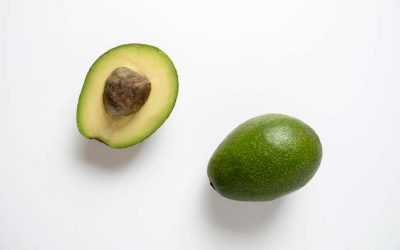Hello Naturally Healthy Community,
Last week, we explored how colourful berries, heart-healthy vegetables, and warming spices can all contribute to a healthy heart. This week, as we continue on the theme, I’d like to share some recently published research, which serves as another reminder to care for your heart. This fascinating study suggests that your body could be giving you more than a decade’s notice if something is not quite right with your cardiovascular health. In fact, your body could warn you 12 years before a heart attack.
Researchers followed over 11,000 individuals for 35 years as part of a study published in JAMA Cardiology. They discovered that those who eventually developed heart disease, whether a heart attack, stroke or heart failure, had already started becoming less physically active up to 12 years before their diagnosis.
This was not always a dramatic or sudden change. Often, it was subtle: the dog walk got shorter, gardening felt more tiring, or weekend bike rides happened less frequently. Many participants simply thought they were slowing down with age, but the data shows this could be an early sign that the cardiovascular system is under strain. Activity levels dropped steadily over the years, then more sharply in the final two years before diagnosis.
Why Physical Activity Matters for Your Heart
Regular movement keeps your cardiovascular system strong, helps regulate blood pressure, supports healthy blood vessels and maintains muscle mass. Losing fitness over time not only affects independence but can also accelerate heart-related decline.
Even small, consistent increases in activity can improve circulation, energy, and heart resilience, whether that involves walking more, lifting light weights, or incorporating stretching and mobility work into your day.
The encouraging takeaway? Twelve years offers a big window to make changes, and even modest improvements in daily activity could help keep your heart and muscles working well.
Practical ways to stay active for your heart
- Notice the changes: If daily activities start feeling harder than they used to, do not brush it off. See it as a cue to take action.
- Find movement you enjoy: Walking, gardening, dancing, and stretching all count. The best activity is the one you will actually do.
- Build it into your day: Take stairs instead of lifts, park further away, do a few stretches while the kettle boils, and if you work at a desk, stand up and move around at least once an hour.
- Address the barriers: If tiredness, stress, or pain are holding you back, look for ways to address these issues. Improving sleep and reducing stress can make movement feel easier.
- Keep it steady: The goal is not a sudden fitness overhaul, but consistent, small choices that add up over the years.
Your activity level can be one of the best real-time indicators of heart health. If movement starts to feel like a chore, it could be your heart’s way of asking for help, and giving you years to respond. However, listen to your body, and if persistent fatigue, shortness of breath or chest discomfort occurs, it should prompt a medical check.
Supplements That Can Help Keep You Moving
Alongside regular movement, your heart and muscles benefit from the right nutrition, both from whole foods and targeted supplements.
- CoQ10 – An essential nutrient for energy production in your cells. Studies show CoQ10 can improve stamina, muscle recovery and heart function in older adults. Levels naturally decline with age, so topping up can make activity feel easier.
- Creatine – Well known among athletes, but just as important for those over 50. Creatine supports muscle strength, helps maintain lean mass and reduces fatigue, making it easier to stay mobile and independent.
- Omega-3 fatty acids – Found in oily fish, flax and chia seeds, omega-3s help maintain flexible blood vessels, support healthy blood pressure and reduce inflammation.
- Magnesium – Vital for muscle relaxation, energy metabolism and a steady heart rhythm. Many people fall short of the recommended intake, which can affect both energy and cardiovascular health.
- B vitamins – Particularly B1, B2, B6, B12 and folate, which help convert food into energy and keep homocysteine levels in check, an important factor for heart health.
Staying active isn’t about chasing marathon medals; it’s about keeping your heart and muscles strong through everyday movement. This research is a timely reminder that if you’ve noticed your activity slipping, now’s the perfect moment to start making gentle, consistent changes. Alongside a balanced diet, the right nutritional support can also help you maintain energy, recover faster, and keep your heart working at its best.




